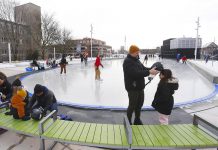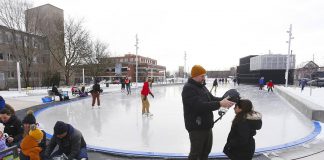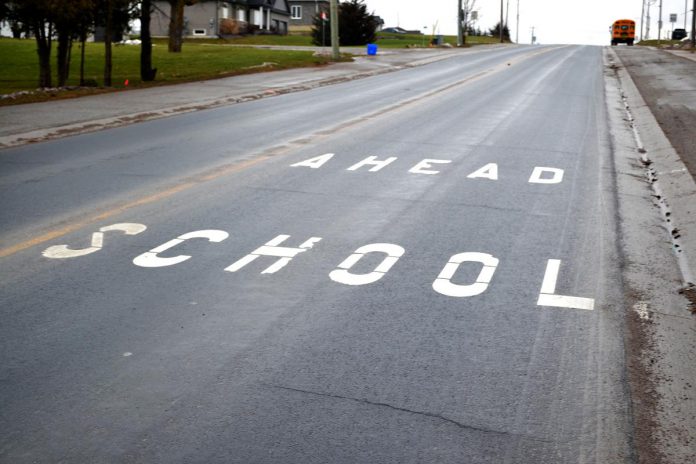
Ever felt like your attention is starting to drift away as you try to absorb information that is important to you? Maybe you’re trying to listen to an interview or watch a documentary about the research behind a particular area of climate action. Even though you care and want to understand the research, you just keep drifting away.
Often, our reflex is to blame ourselves. We should have had more coffee, or we should try harder to pay attention, or we should remove distractions, etc. Paying active attention is important, especially with all the distractions we live with today. That said, it may not always be your fault if your attention drifts away. You may be a victim of ineffective knowledge mobilization.
Knowledge mobilization refers to the ways we produce, analyze, distribute, and share the results of research projects. Basically, knowledge mobilization is how we make research matter.
Knowledge mobilization is a key goal for GreenUP’s School Travel Planning projects. In these projects we generate a lot of knowledge through community-based research, and we typically communicate (or mobilize) that research using social media, digital storytelling, and online content.
Dr. Stephen Hill, associate director of the Trent School of the Environment, explains that “research is about carefully and systematically making sense of the world around us and finding solutions to complicated problems.” So ultimately, all research does have the goal of real-world application. However, in order for these solutions to have any real-world impact, they must be communicated effectively to many audiences and through many formats.
This is especially important in the realm of sustainability. Talking about topics such as active school travel is one of the most powerful things that individuals can do in the face of climate change, especially within their own networks of family and friends.
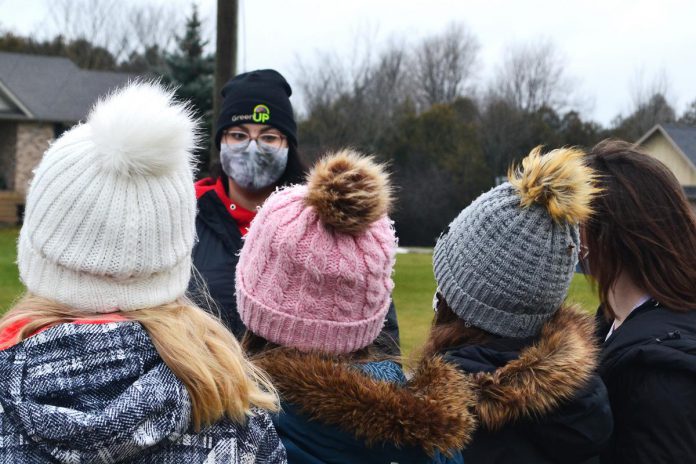
A 2019 Yale study found that people learn important facts about climate change through discussion with friends and family. Since the majority of us who are over 30 did not receive much in the way of sustainability education, in order to have these conversations we must seek out research. But traditional research reports can be daunting.
Open, diverse, and participatory knowledge mobilization processes can build confidence and generate even more knowledge mobilization. That same Yale study also found that the more we are able to communicate to our families and friends about sustainability, the more they are compelled to do the same.
This is why researchers have a responsibility both to involve as many people as possible in the actual research process, and to communicate findings as widely as possible.
“When real people get involved with designing research projects, and communicating and using the findings, good things can happen,” explains Dr. Hill. “Research becomes more relevant and impactful.”
Well-communicated research can change public practice and policies, enhance public services, and inform the decisions of people in business and the government. Poorly-communicated research will not have those impacts, regardless of how significant its findings are.
Relationship-building is a vital component of knowledge mobilization. The goals of research have not always been altruistic, and both researchers at academic institutions and non-governmental organizations have a long way to go with many people.
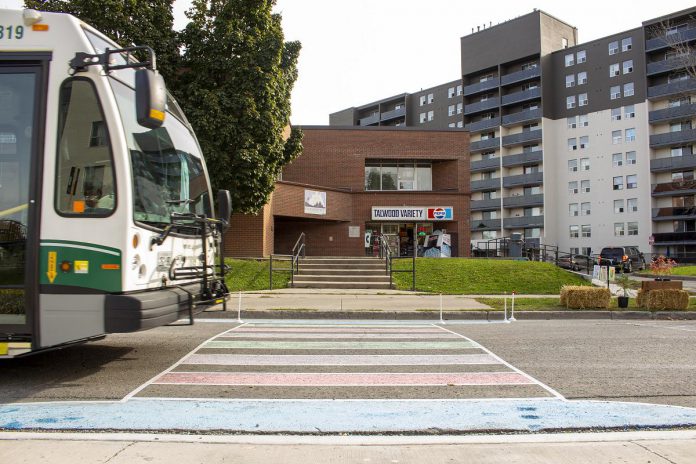
“Racialized communities are often excluded from conversations surrounding sustainability and environmentalism,” explains Patricia Wilson of the Diverse Nature Collective. “[They] are the most vulnerable to the harmful impacts of environmental destruction and climate change, but they are often excluded from contributing ideas, knowledge, and experiences that can help inform solutions to many complex sustainability issues.”
This is true for other marginalized groups as well, such as people living with disabilities, children and youth, Indigenous people, and rural or semi-rural communities.
“Building meaningful relationships is the key to moving forward in the sustainability movement,” explains Wilson. “Relationship building needs to be deliberate and intentional, and organizations need to make space for these voices – and actually listen to them!”
GreenUP’s School Travel Planning projects are facilitated in partnership with Green Communities Canada, Ontario Active School Travel, Peterborough County, Selwyn Township members of the Active School Travel Peterborough committee, students, teachers, and other community members.
Through these projects we have sought to exemplify relationship-building and effective knowledge mobilization from research design to the communication of results. So far, we have used social media to communicate the benefits of School Travel Planning and collect and share back community stories of active school travel through the “Frame Your Trip” contest.
A few months ago, community members helped us gather valuable on-the-ground information about school travel conditions in Selwyn Township through walkabouts. Look out for key findings from the walkabouts, coming to @ptbogreenup on social media soon.
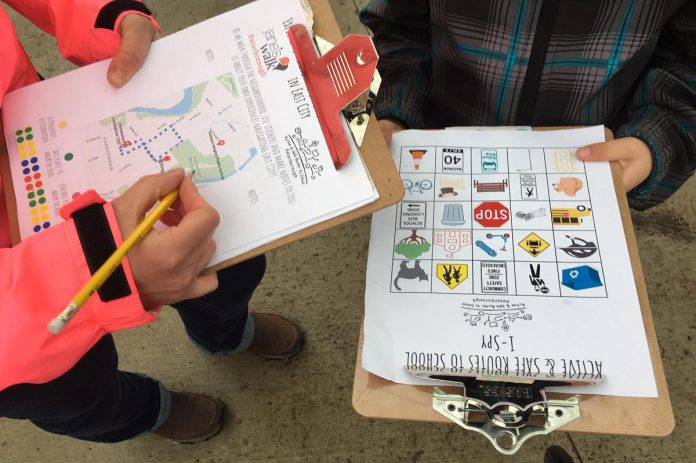
We’ve used participatory methods internally as well, to help identify priorities and commitments with stakeholders from the Norwood and East City round of school travel planning.
We are working to bring all of this together in a revamp of the information available about School Travel Planning on GreenUP’s website. This new online presence will provide clarity on the overall School Travel Planning process, break down local projects, highlight the contributions of community members, and communicate implementation progress and other next steps.
It is true that knowledge is power, and we are thrilled to be working with many partners and community members to distribute that knowledge and power effectively throughout our communities. Through effective knowledge mobilization we are empowering people across Peterborough city and county to improve active school travel participation and take climate action.
Learn more about School Travel Planning by visiting greenup.on.ca/school-travel-planning.
School Travel Planning is a project of Active School Travel Peterborough. Funding for the School Travel Planning projects in Selwyn, Norwood, and Peterborough has been generously provided by Green Communities Canada, Ontario Active School Travel, and the Government of Ontario.
Local partners include Peterborough County, the City of Peterborough, the Township of Selwyn, Peterborough Public Health, the Kawartha Pine Ridge District School Board, Peterborough Victoria Northumberland and Clarington District School Board, Crossing Guards of Peterborough, Peterborough Police, and Student Transportation Services of Central Ontario.


